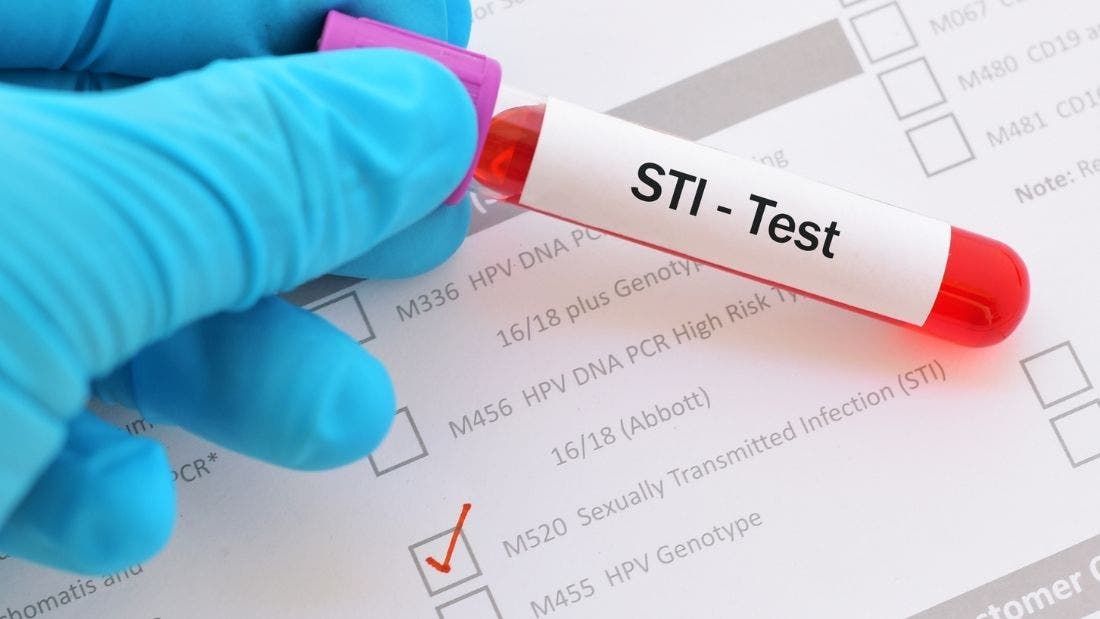Let’s Get Tested
Testing for STDs/STIs might conjure an image of uncomfortable conversations in your high school health class or something you read in a pamphlet at your doctor’s office. However, we’d like to assure you that getting an STI is normal and manageable, preventing them is a great way to care for yourself and your partners, and that getting tested should be considered part of routine sexual health. It’s just one more way to keep things fun and sexy.
There’s some confusion on the difference between an STD and STI. For the most part, the terms used interchangeably despite the fact that most sexually transmitted diseases are, in fact, actually infections. An infection can later become a disease, but if you catch it quickly and treat it, odds are it won’t leave any dramatic lingering side effects.
Either way, it’s important to regularly test for both if you are sexually active.
The Importance of Getting Tested
It’s extra important to get tested if you have unprotected sex. And by sex, we mean any kind of sexual contact: anal, vaginal, oral, or otherwise. If you have been exposed to the bodily fluids of another person, there’s a possibility you’ve contracted an STI.
It’s very common for STIs to manifest without any symptoms. Therefore, the only way to know if you have one is to get tested.
For every new partner and after every encounter, you should get tested. And you should expect your partner to have a clean bill of health before hooking up, or at least disclose if they have an active infection. But sometimes things get carried away or you’re caught up in the heat of the moment without having the time to verify your partner’s sexual history or disclose your own.
Being on birth control is also not good enough to prevent the spread of STIs. Hormonal birth control, such as the pill, IUDs, and the Nexplanon implant do not offer any protection against STIs. They only offer protection against pregnancy, so be aware of this.
Like we said earlier, an infection is the first step in a developing disease. Planned Parenthood writes that STIs/STDs “can cause serious damage over time, even if you feel totally fine right now. STDs can also spread to other people you have sex with, whether or not you have any symptoms.” So if you have an STI, it’s best to find out and treat it as soon as possible before it can exacerbate.
Also, if you learn that you’ve been carrying an STI, contact your previous partners. They might not have contracted anything from you, but it’s best to make people aware of this information before they find out later down the road. It’s always best to be forthcoming about your health and how that can impact other people.
What To Expect When Getting Tested
Unfortunately, STI testing isn’t part of a regular checkup, so you’re going to have to ask to be tested. This might feel awkward, but don’t be embarrassed. There’s nothing embarrassing about being proactive about your health.
Getting tested is quick, painless, and possibly free spending on where you get it (we’ll talk more about that later).
Many clinics offer online booking so you should be able to get on their calendar fairly quickly.
Your healthcare provider is likely going to ask you about your sexual history and if you have noticed any symptoms of STIs. These can include:
Sores or bumps on and around your genitals, thighs, or butt cheeks
Abnormal discharge
Burning sensation when urinating
Frequent urination
Pain, irritation and/or swelling in your genitals or anus
Flu-like symptoms such as fever, body aches, swollen glands, and feeling tired
However, all of the above symptoms could be caused by something other than STIs, so the only way to truly know if you have an STI is to get tested. STIs all have different symptoms, so disclose everything you’re experiencing, or not experiencing, to your healthcare provider so they know what to test for.
Urine test
Cheek swab
Blood test
Physical exam
Testing your sores (take a fluid sample from blisters via swab)
Swab test of genitals or throat
If you have reason to believe you have been exposed to HIV, lead with this information. You might need to be given PEP (post-exposure prophylaxis). It is used in emergency situations and must be started within 72 hours of possible exposure to HIV.
Fortunately, many clinics have rapid tests for HIV and are able to begin PEP within the 72 hour window. But some tests can take days or weeks to process. Ask your healthcare provider how long it will take to get results. Depending on the test, they might be able to tell your results immediately. Some hospitals might have a “no news is good news” policy, but don’t assume that that’s the case. Always follow up for your results.
Unlike Covid-19 tests, you don’t have to quarantine while you wait for your results, but definitely hold off on sexual activity while you wait for them. It’s always better to be safe than sorry.
Talking to Partners About Your Status
The best time to have this conversation is before you have sex. Although it's not the most romantic topic, ensuring you and your partner are healthy is what will keep the romance going.
When you start seeing someone new and it looks like you both want to engage in sexual activity, suggest that you both get tested beforehand. We’re getting there, but conversations around sexual health aren’t totally normalized yet. But making it an upfront and integral part of engaging in relationships will not only keep you safe, but might help improve the overall conversation surrounding sexual health.
And if someone suggests this to you, know that it isn’t a personal attack or accusation.
Avoid letting it slip into the awkward gray area of conversation and treat it as something totally normal. Try saying something like “I wanted to let you know that I’ve been tested recently and I didn’t have anything. Have you been tested lately?”
Be firm in your requirement of your partner getting tested. Make sure their results are accurate and up-to-date. Your health is worth safeguarding.
Now if there is something you need to disclose to your partner, be upfront about it. You don’t have to make a big deal out of it. Keep it simple. Try something like: “Hey, I had chlamydia a few months ago but my medication totally cleared it up, so we’re good to go. I wanted to tell you beforehand, and ask if you’ve been tested recently?”
When you have this conversation, make sure that both of you are actively engaged in the conversation. Stay calm and treat the conversation as a neutral topic. Millions of people have STIs and have successfully treated or managed them.
Not disclosing can also be a violation of consent, because you’re concealing information that might change whether your partner would agree to have sex. Always be upfront with others.
When someone chooses to disclose, be respectful of the trust they’re placing in you. If STIs are a non-starter for you, let them down gently. They’ve shown initiative and respect by managing their sexual health and disclosing this information to you so there’s no reason to shame them about whatever they share—not that you should ever shame anyone. Bullying is never an acceptable response.
Options for Testing
You can get tested at your doctor’s office, Planned Parenthood, your local health department, or your local health clinics.
Because of the Affordable Care Act, most insurance plans will cover testing. However, insurance isn’t your only route to free testing. Most city and county health departments offer free or low-cost STI testing. A quick online search should yield results as to where you can find free or affordable testing near you.
Safer STD Testing is another great resource for accessing testing. Their free website offers a tool to locate your closest free clinics.
Explore your local options. Planned Parenthood offers services covered by insurance and will work with the uninsured/underinsured to find something that fits your budget. Equitas Health is a leading non-profit healthcare system serving LGBTQ+ individuals in 13 cities in the Midwest. They offer free and confidential STI testing, as well as preventative strategies and treatments. Browse online to find something that best fits your needs.
If you’re a college student, your university probably offers free or discounted testing at your campus clinic. Try contacting them online or over the phone to see what options are available to you.
You have options, so take advantage of them.
Bottom line: get tested.


